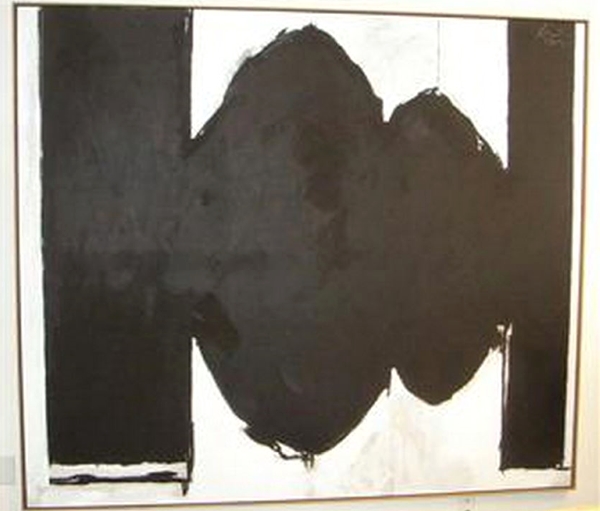Analysis
Court Ruling on Art Estate Taxes Could Save You Millions
Court grants huge estate tax discount for shared art ownership.

Court grants huge estate tax discount for shared art ownership.

Eileen Kinsella


Robert Motherwell, Elegy to Spanish Republic #134 (1976).
Courtesy the Elkins Collection.
In what is being viewed as a victory for art collectors looking to dodge or minimize estate taxes, a US Appeals court agreed that shared ownership of a multi-million dollar blue chip art collection—also known as a “fractional interest”—entitled a Texas family to a substantial tax break when it came to settling an estate.
The value of the collection is immense. Over the course of nearly three decades (1970–99), Houston-based James Elkins and his wife Margaret collected 64 works by artists including Pablo Picasso, Jackson Pollock, Paul Cézanne, Jasper Johns, Ellsworth Kelly, Cy Twombly and Robert Motherwell, among others. Mrs. Elkins died in May 1999 and Mr. Elkins died in March 2006. Prior to their deaths, they arranged a grantor-retained income trust (or GRIT) by which partial ownership of the art passed to each of their three children.
Though the terms of this particular estate planning vehicle are complex, the basic principle is that the shared ownership interests inhibit a sale or transfer of the works, since the divided ownership means there would have to be unanimous agreement on any proposed sale. Further, the children had publicly stated that they have no interest in selling the works and are in a solid enough financial position that they have no need to.
Three Well-Known Experts
The Elkins family reasoned that the restricted ownership impacted the value of the works and that the estate taxes owed on them should reflect a discount of 44 percent in determining their fair market value. Further, the family employed three well-known experts to provide and substantiate the extent of the discount. These included: David Nash, co-director of Mitchell-Innes & Nash; William T. Miller, an expert on Texas law; and Mark Mitchell, an expert on the valuation of fractional interests in property. The IRS, however, disagreed and hit the family with a tax bill, or “deficiency notice,” stating they owed more than $14 million plus interest.
The ruling, handed down on September 15 by the US Court of Appeals for the Fifth Circuit, sided with the family. The judge ruled “that deficiency resulted solely from the [IRS] Commissioner’s disallowance of the ‘fractional ownership discount’.” Earlier, a US Tax Court ruled that the family was entitled to some rate of discount but it did not accept the Elkins family’s calculations and instead settled on a seemingly arbitrary “10 percent” discount allowance. The appeals court took issue with this, stating, “We disagreed with the ultimate step in the court analysis that led it not only to reject the [Elkins family’s proposed discount] but also to adopt and apply one of its own without any supporting evidence.” The Fifth Circuit decision ruled for an even more extensive discount that ranged from 52 percent to 80 percent, depending on the work in question and based on testimony from the estate’s experts.
“This is really the first case to ever seriously consider that issue in the case of fine art.”
Donald Wood, the attorney who represented the Elkins family, told artnet News via telephone: “There is a long history under tax law of allowing discounts for minority interests in all kinds of tangible and intangible property as well as real estate. This case simply extended that well-established law to works of art. This is really the first case to ever seriously consider that issue in the case of fine art.”
We also asked art law expert Nicholas O’Donnell, a partner with Sullivan & Worcester in Boston, for his take on the ruling. O’Donnell replied, via email: “The case is a little unusual because while the taxpayer put on an extensive case about the appropriate rate of discount, the IRS put on none. Compounding that, the Tax Court decision under review rejected the estate’s proposed discount and chose 10 percent. The 5th Circuit was particularly critical that this number seemed more or less plucked out of thin air. ”